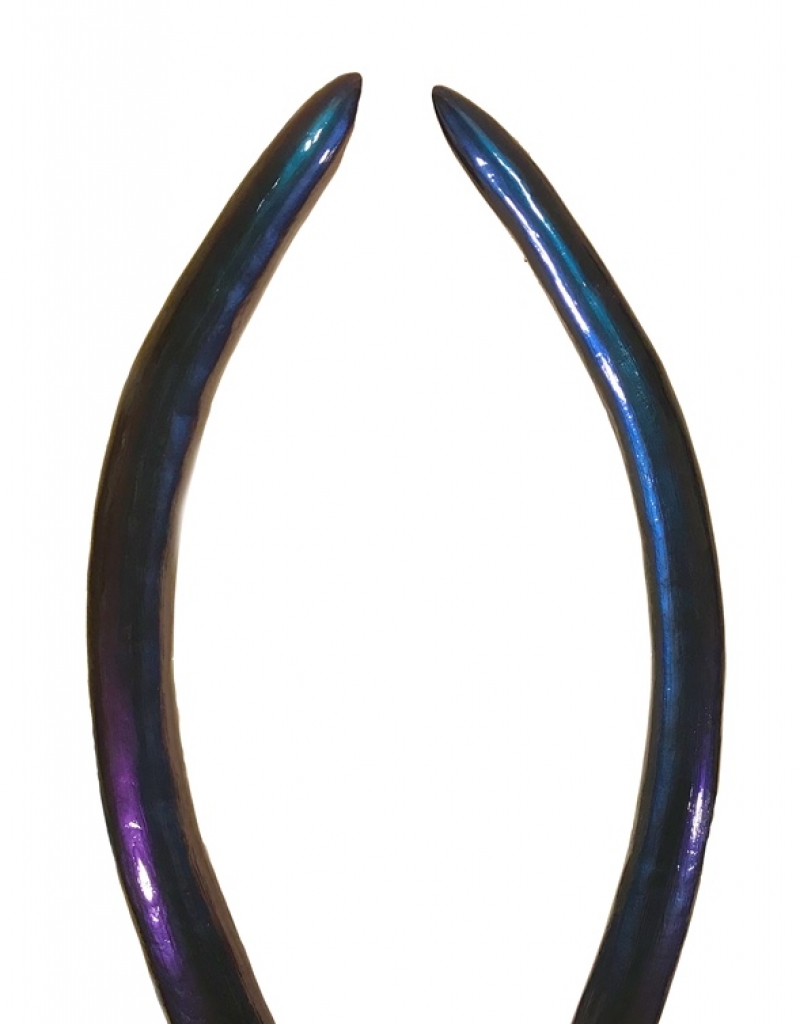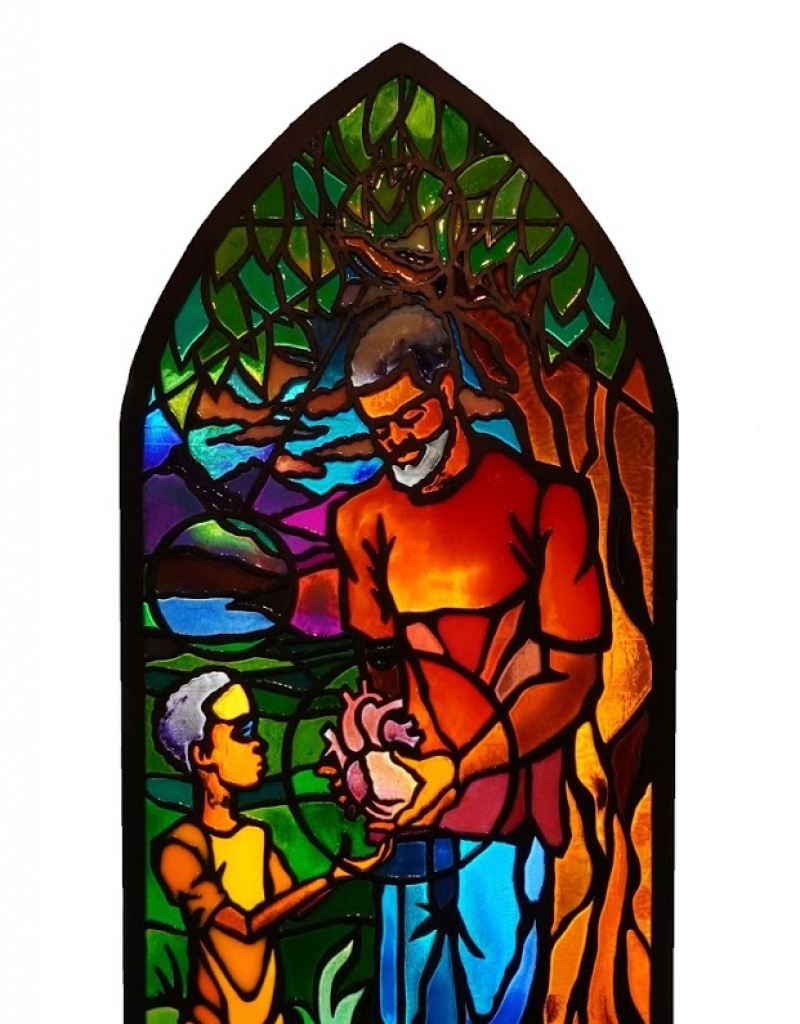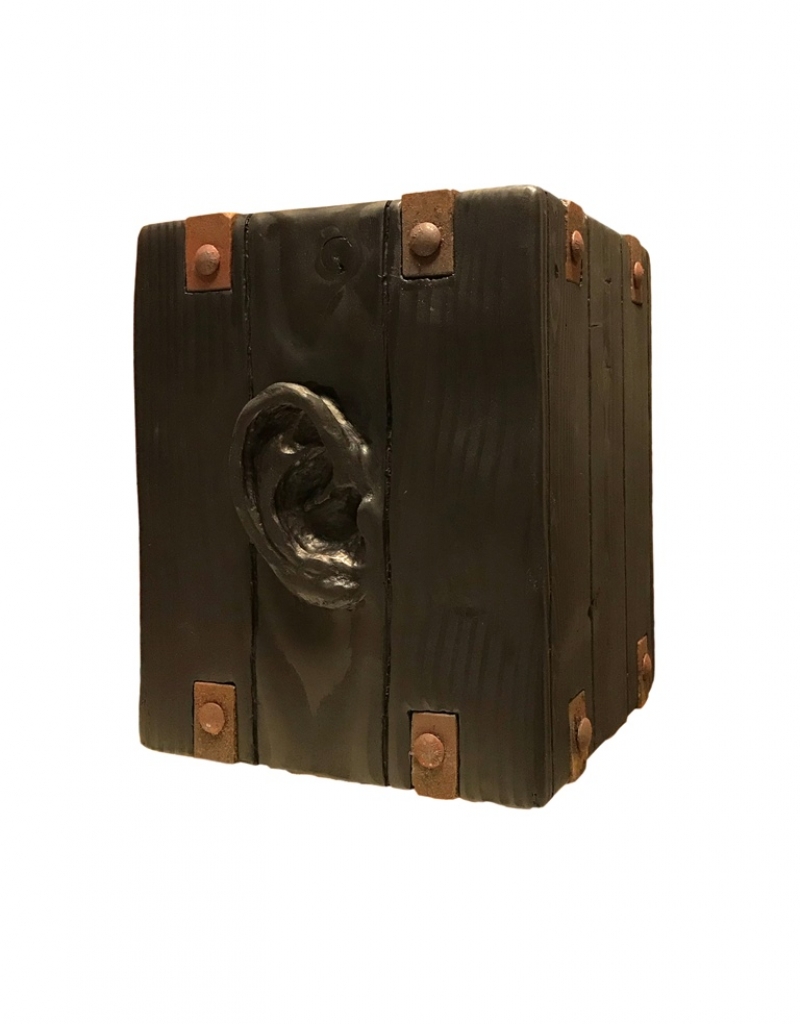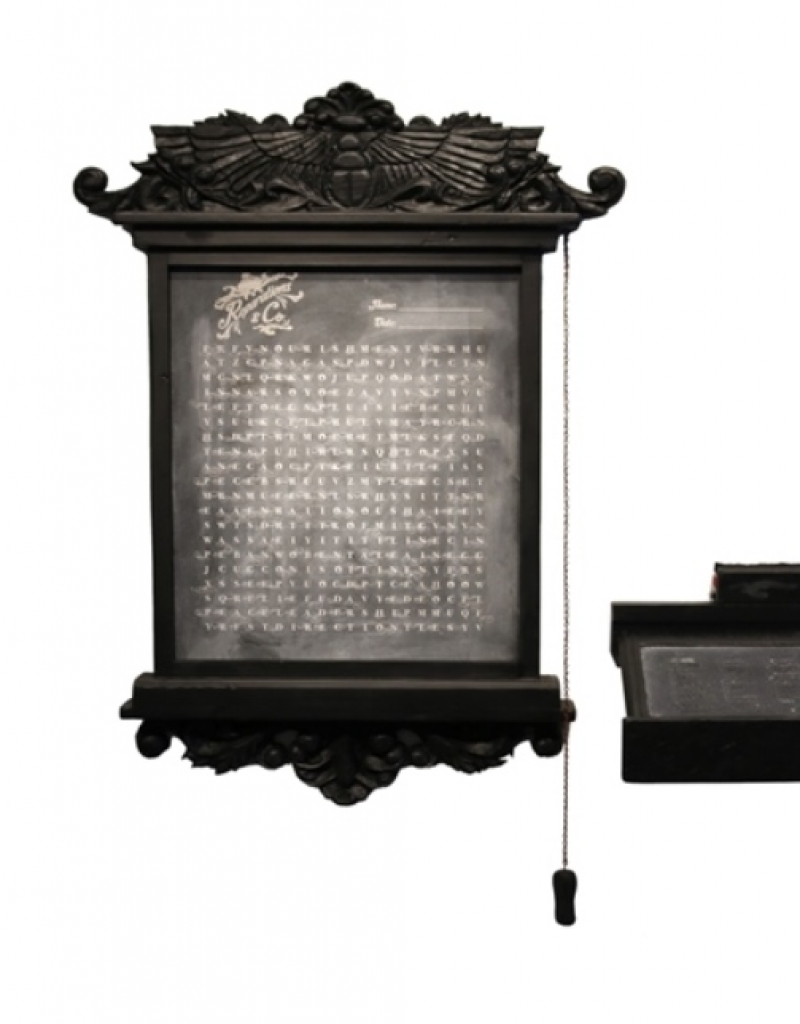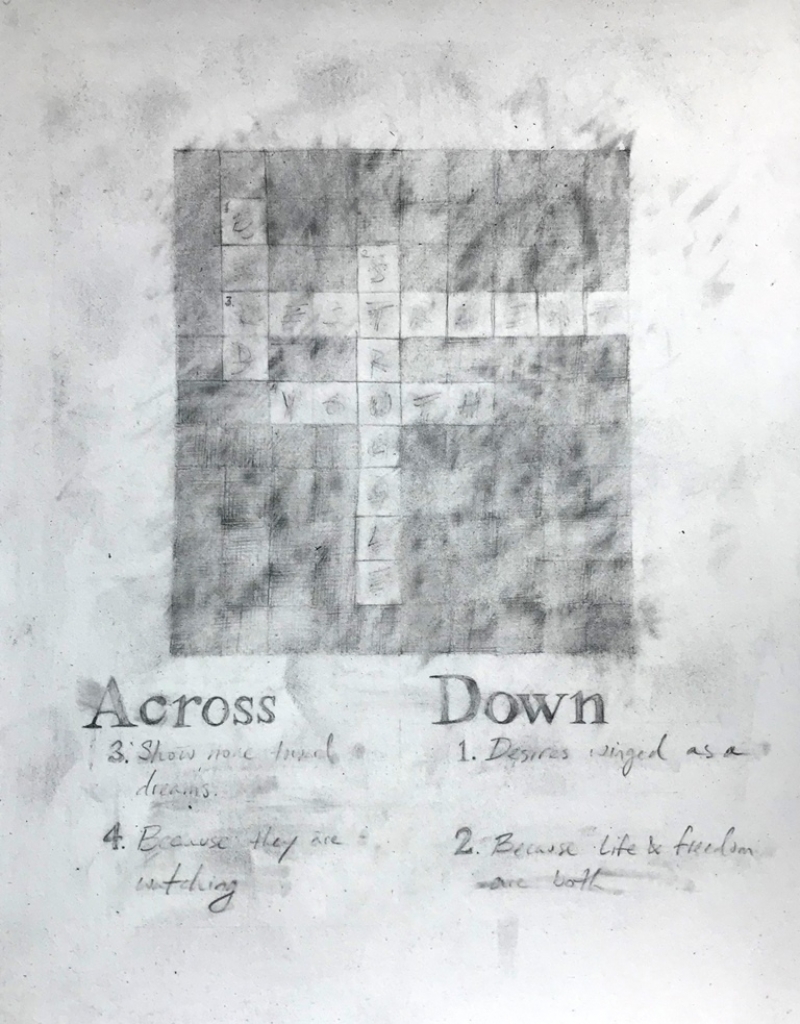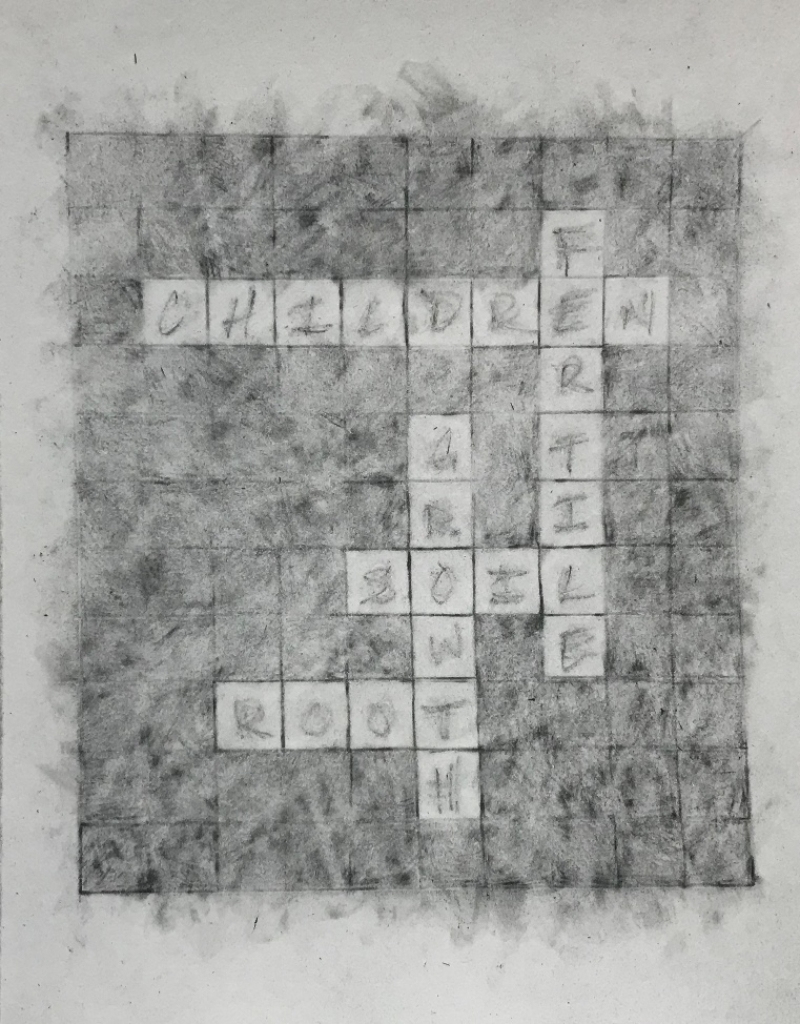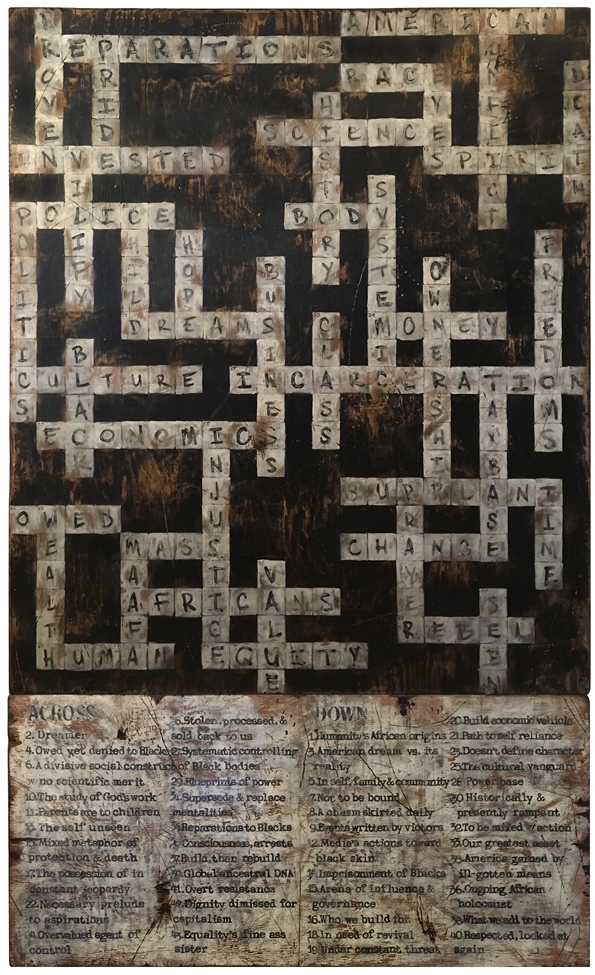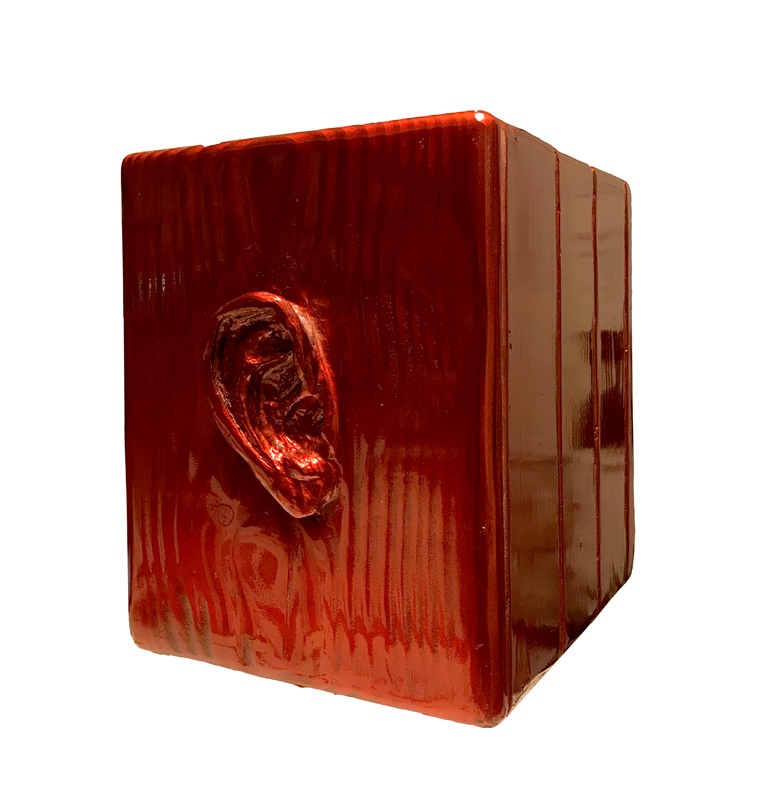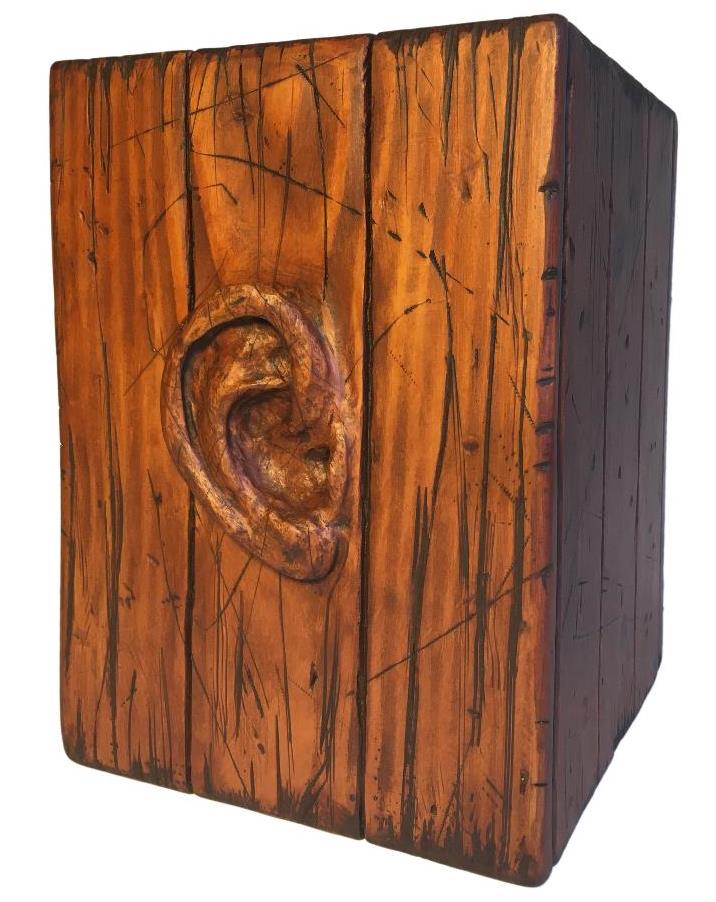 Artist
Artist
Reparations – Some Things are Just Owed and Some…
Reparations: Some Things are Just Owed and Some More than Others
Solo Exhibition featuring Wesley Clark
September 22 – October, 31, 2019
artwork | artist statement | curatorial statement | about Wesley Clark
Artist Statement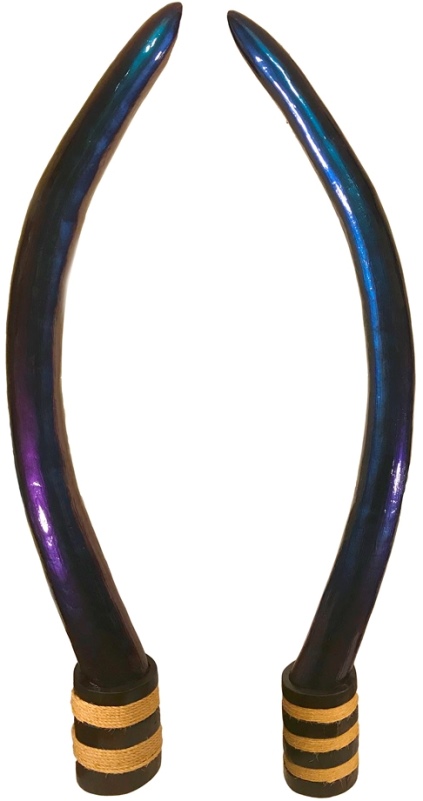
The exhibition, Reparations: Some Things are Just Owed, and Some More than Others, showcases a selection of objects created by a recently discovered artisanal-based company, Reparations & Co. Reparations & Co. (a.k.a. Rep & Co.) founded by Eugene & Morris, two Black men during the Reconstruction era, created functional, subversive, and empowering objects — some futuristic in thought and process. Not much is known about the craftsmen or the company, however, in recent years several objects have surfaced on the auction and secondary markets with the company’s logo, prompting research. As such, researchers discovered what is believed to be their shop in an overgrown, abandoned, dilapidated barn-like structure near Freetown, in Glen Burnie, MD. The collection found is vast and while remarkably well preserved, some objects were vandalized, prompting restoration efforts. On display in this exhibition viewers get a peek into the past through the minds of two craftsmen as they fuse economic empowerment, restoration of identity, and more into their functional and decorative objects; during a pivotal yet short-lived period of American history.
The fictitious narrative of Reparations & Co. is what drives many of the aesthetic choices; it is the vehicle used to create a dialogue on ideas of racial socialization — as described in Post Traumatic Slave Syndrome, by Dr. Joy DeGruy — as a means of expanding and internalizing the discussion of reparations to include what we as Black Americans owe ourselves.
“…the process whereby we come to know our strengths, understand the world in which we live, and position ourselves to thrive. Continual education is at the heart of racial socialization. For young children, education is the elder’s responsibility. For adults, the responsibility is our own. We have to remain vigilant and questioning. We have to continue to constantly endeavor to keep ourselves informed and our education current. We have to question the image we ourselves are portraying. We have to examine the sounds and pictures we expose ourselves to. We have to filter what we hear on the news and strive to understand what is true.“
– Joy DeGruy, Post Traumatic Slave Syndrome
watch Joy DeGruy lecture on Post Traumatic Slave Syndrome
Whether from present day or generational trauma, communal preparation and advancement are at the heart of this body of work. Under the umbrella of preparation, inwardly focused themes around mental health, family history and legacy, self-respect and dignity, leadership, rebuilding the Black economy and restoring relationships are touched on as a means of being solution-oriented. While there are outside influences discussed on the traditional theme of reparations, the focus remains inward. Two examples of such influences can be found when examining the works The Profiteers 1 & The Profiteers 2. The first recognizes existing companies operating in the US (though possibly under a new name) that profited from the enslavement of Africans. The second names corporations that have or still use prison labor and thereby support the growth of the prison industrial complex (i.e., Sprint, Verizon, Bank of America and Walmart). My intent is to think about self-respect, as well as building and supporting a Black economy, as each name listed represents an industry for the Blacks to build and compete in.
A large portion of my work considers aging, weathering, and/or antiquing objects driven by fictional narratives, which informs my aesthetic choices. Most often this process is about linking present day content to historical issues, or ideas around value. Objects that are salvaged and displayed are deemed to possess a certain value or esteem. I set the stage for that sense of value to be linked to contemporary socio-political or socio-economic issues and conversations. With this body of work, I’ve chosen to incorporate custom automotive high gloss paints — often used on “tricked out” or restored cars — as a contemporary reference to notions of value. These “candy” or “flip flop/color shifting” paints are typical for early/classic model cars souped up with big, fancy rims, chrome details, or engine/body modifications. These cars have been popularized by rap culture in particular and therefore are associated with money, fame, and all that comes with it — just as owning a certain antique furniture piece once were — hence speaks to a younger generation’s value system. Such paints were incorporated into the works, Restoring our Majesty, Wading in the Waters of Babylon, and The Tell-All Earbox: Model no. C3l3stial-4, as one of two visual elements — the other being “tagging”/graffiti writing — to fuse the temporal space between the antique lover and millennial mind.
I’m not concerned with the viewer engaging my personal narratives that drive the work. More often than not, they’re just for me and my process. Reparations & Co. marks the first time my working narrative has held an elemental position (in the form of a logo placed on a few works) and thus a larger more robust storyline has emerged. I work with fictitious narratives as a means of setting a stage for myself mentally — and every stage has its props and boundaries. Therefore I’m constantly questioning, “Does this idea/object fit within the boundaries of my stage and how?” The objects (props) I choose to create are often ubiquitous, even mundane items with slight hybridity-like aspects tossed in for good measure. For the viewer, it’s the objects’ familiarity — loaded with preconceived notions and understandings – that allow entryway. With that familiarity in place, the stage is set for viewers to explore the relationship with the “foreign” social and/or political elements incorporated into the work.


